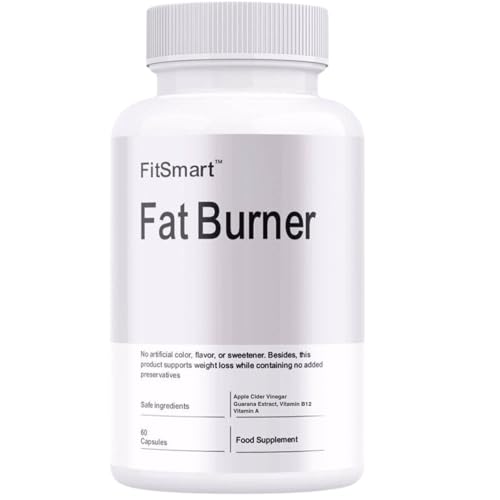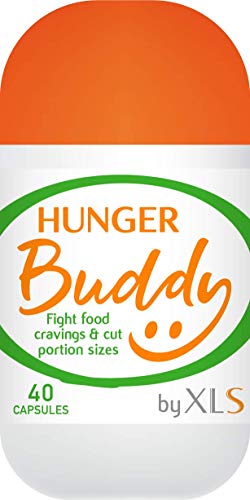
The Complete Guide to Appetite Suppressants
Are you tired of constantly battling hunger cravings and struggling to stick to a healthy eating plan? If so, you're not alone. Many people find it challenging to control their appetite and maintain a balanced diet. Fortunately, there are solutions available that can help curb food cravings and keep you on track with your wellness goals. In this guide, we look at the types of appetite suppressants, their pros and cons, and how to choose the right one for yourself. We'll even share some delicious recipes that incorporate appetite-suppressing ingredients!
Appetite Suppressants
Appetite suppressants have gained popularity in recent years as a tool to aid weight loss and control overeating. These substances work by reducing hunger signals in the brain, helping individuals consume fewer calories and feel satisfied with smaller portions.
There are various types of appetite suppressants available on the market. One common type is prescription medications, which are typically prescribed for individuals with obesity or weight-related health conditions. These medications work by altering chemicals in the brain that regulate appetite, making you feel less hungry.
Another type of appetite suppressant comes in the form of natural supplements. These often contain ingredients such as green tea extract, garcinia cambogia, or glucomannan – all believed to help reduce food cravings and promote feelings of fullness.
It's important to note that while appetite suppressants can be effective tools for weight management, they should always be used under medical supervision. Some may come with potential side effects or interact with certain medications.
In addition to medication and supplements, there are also lifestyle changes that can naturally help curb your appetite. Regular exercise, drinking plenty of water throughout the day, and focusing on nutrient-rich foods can all contribute to satiety and decrease unnecessary snacking.
Remember that everyone's body is unique and what works for one person may not work for another when it comes to appetite suppression. It's crucial to consult with a healthcare professional before starting any new regimen involving these substances.
Different Types of Appetite Suppressants
There are various types of appetite suppressants available on the market today, each with its own unique mechanisms and benefits. Let's take a closer look at some of the different types:
1. Prescription Medications - These appetite suppressants are typically prescribed by doctors for individuals struggling with obesity or weight-related health issues. They work by affecting certain chemicals in the brain that control hunger and fullness.
2. Over-the-Counter Supplements - These are non-prescription appetite suppressants that can be easily purchased at your local pharmacy or online. They often contain natural ingredients like green tea extract, fibre, or caffeine to help curb cravings and boost metabolism.
3. Herbal Remedies - Many herbal supplements claim to reduce appetite naturally without any side effects. Examples include Garcinia Cambogia, Hoodia Gordonii, and African Mango extract.
4. Fibre-Based Products - Foods high in fibre can help you feel fuller for longer periods, reducing the urge to overeat. Some popular options include psyllium husk supplements or incorporating more fruits, vegetables, whole grains into your diet.
5. Prescription Weight Loss Injections - These injections contain substances such as liraglutide which mimic a hormone called GLP-1 produced in the gut after eating food.
It's important to note that while these appetite suppressants may aid weight loss efforts when used properly under guidance from healthcare professionals; they should not be relied upon as a long-term solution without making necessary lifestyle changes such as healthy eating habits and regular exercise routine.
Pros and Cons of Appetite Suppressants
Using appetite suppressants can have both positive and negative effects on your weight loss journey. Let's take a look at some of the pros and cons associated with these products.
On the positive side, appetite suppressants can help you feel fuller for longer, which means you may consume fewer calories throughout the day. This can be especially beneficial if you struggle with portion control or find it difficult to resist cravings. By reducing your overall calorie intake, appetite suppressants can support weight loss efforts.
Another advantage is that certain types of appetite suppressants may increase your metabolism, leading to more efficient fat burning. This could potentially accelerate your weight loss progress when combined with a healthy diet and regular exercise routine.
However, like any medication or supplement, there are potential drawbacks to consider. One common concern is that prolonged use of appetite suppressants may lead to dependency or tolerance issues. Your body may become accustomed to the effects over time, requiring higher doses for continued effectiveness.
Furthermore, some individuals may experience side effects such as nausea, headaches, or insomnia while taking these products. It's important to carefully monitor how your body responds and consult with a healthcare professional if any adverse reactions occur.
Additionally, it's worth noting that although suppressing hunger signals temporarily helps with weight management in the short term; it does not address underlying emotional or psychological factors contributing to overeating habits.
In summary, appetite suppressants can be an effective tool in managing calorie intake and supporting weight loss efforts by curbing hunger pangs and boosting metabolism. However, it's crucial to consider their benefits against potential risks before incorporating them into your routine.
How to Choose the Right Appetite Suppressant for You
Choosing the right appetite suppressant can be a daunting task with so many options available in the market. However, by considering a few key factors, you can make an informed decision that suits your needs.
First and foremost, it is important to consult with a healthcare professional before starting any appetite suppressant regimen. They can provide guidance based on your individual health history and goals. Additionally, they may be able to recommend specific brands or ingredients that align with your needs.
Next, consider the type of appetite suppressant that best fits your lifestyle. There are various forms available including pills, capsules, powders, and even teas. Think about what method would be most convenient for you to incorporate into your daily routine.
Another factor to consider is the ingredients used in the appetite suppressant. Look for natural ingredients such as green tea extract or Garcinia Cambogia which have been shown to help reduce hunger cravings. Avoid products that contain harmful stimulants or excessive amounts of caffeine.
It's also important to read reviews and testimonials from other users who have tried the product you are considering. This can give you valuable insight into its effectiveness and any potential side effects.
Keep in mind that everyone's body is different and what works for one person may not work for another. It may take some trial and error before finding the right appetite suppressant that works best for you.
By taking these factors into consideration when choosing an appetite suppressant, you can increase your chances of finding one that helps support your weight loss goals effectively and safely.
Simple Appetite Suppressant Recipes
Looking for a delicious and healthy way to curb your cravings? Try these easy appetite suppressant recipes that will keep you feeling satisfied without the guilt!
1. Green Smoothie - Blend together a handful of spinach, half a cucumber, one green apple, and a squeeze of lemon juice. This nutrient-packed smoothie is not only refreshing but also high in fibre, which helps to keep you full.
2. Protein-Packed Salad - Mix together grilled chicken or tofu with a variety of colourful vegetables like bell peppers, cherry tomatoes, and shredded carrots. Top it off with a light vinaigrette dressing for an added burst of flavour.
3. Chia Seed Pudding - Combine chia seeds with unsweetened almond milk or coconut milk and let it sit overnight in the refrigerator. In the morning, enjoy this creamy treat packed with omega-3 fatty acids and fibre.
4. Spicy Roasted Chickpeas - Toss drained chickpeas in olive oil, paprika, cayenne pepper, garlic powder, salt, and pepper. Roast them in the oven until crispy for a crunchy snack that will satisfy your cravings.
Remember to listen to your body's hunger cues while enjoying these appetite suppressant recipes!
Alternatives to Appetite Suppressants
If you're looking for natural alternatives to appetite suppressants, there are several options you can consider. These alternatives focus on promoting healthy eating habits and supporting overall well-being.
1. Mindful Eating - One alternative is practicing mindful eating. This involves paying attention to the sensations of hunger and fullness, as well as the taste, texture, and aroma of food. By slowing down and savouring each bite, you may find yourself satisfied with smaller portions.
2. High-Fibre Foods - Incorporating high-fibre foods into your diet can help keep you feeling fuller for longer periods of time. Foods like fruits, vegetables, whole grains, legumes, and nuts are all excellent sources of fibre.
3. Protein-Rich Meals - Including protein-rich foods in your meals can also help curb cravings and reduce appetite. Protein takes longer to digest than carbohydrates or fats, which means it keeps you feeling satisfied for a longer period.
4. Hydration - Sometimes our bodies mistake thirst for hunger signals. Staying properly hydrated throughout the day can help prevent unnecessary snacking by keeping cravings at bay.
5. Exercise Regularly - Engaging in regular physical activity not only helps burn calories but also has been shown to decrease appetite levels in some individuals.
Remember that these alternatives should be used in conjunction with a balanced diet and lifestyle changes tailored to your specific needs.
Conclusion
In this guide to appetite suppressants, we have explored the various types of appetite suppressants available, their pros and cons, and how to choose the right one for you. We have also provided some delicious appetite suppressant recipes that can help you stay on track with your weight loss goals.
While appetite suppressants can be an effective tool in managing hunger and cravings, it's important to remember that they are not a magic solution. It is always recommended to consult with a healthcare professional before starting any new dietary supplement or medication.
Additionally, there are alternatives to appetite suppressants that can also aid in curbing your cravings and controlling your hunger. These include natural remedies such as increasing fibre intake, staying hydrated, practicing mindful eating, and getting regular exercise.
Remember that maintaining a healthy lifestyle involves more than just relying on appetite suppressants or other weight loss aids. It's essential to adopt a well-rounded approach that includes balanced nutrition, regular physical activity, adequate sleep, stress management techniques, and overall self-care.
The key to successful long-term weight management lies in finding what works best for you as an individual. Listen to your body's cues and make sustainable choices that support your overall health and well-being.
By understanding the different types of appetite suppressants available and considering their pros and cons alongside alternative approaches like healthy eating habits and lifestyle changes – you will be able to make informed decisions about managing your hunger levels effectively while working towards achieving your desired weight loss goals.
So, take control of your appetite sensibly! With patience, perseverance, and a holistic approach, you'll find yourself on the path towards improved health, better self-confidence, and increased vitality.
Best Selling Appetite Suppressants
View All Appetite Suppressants















